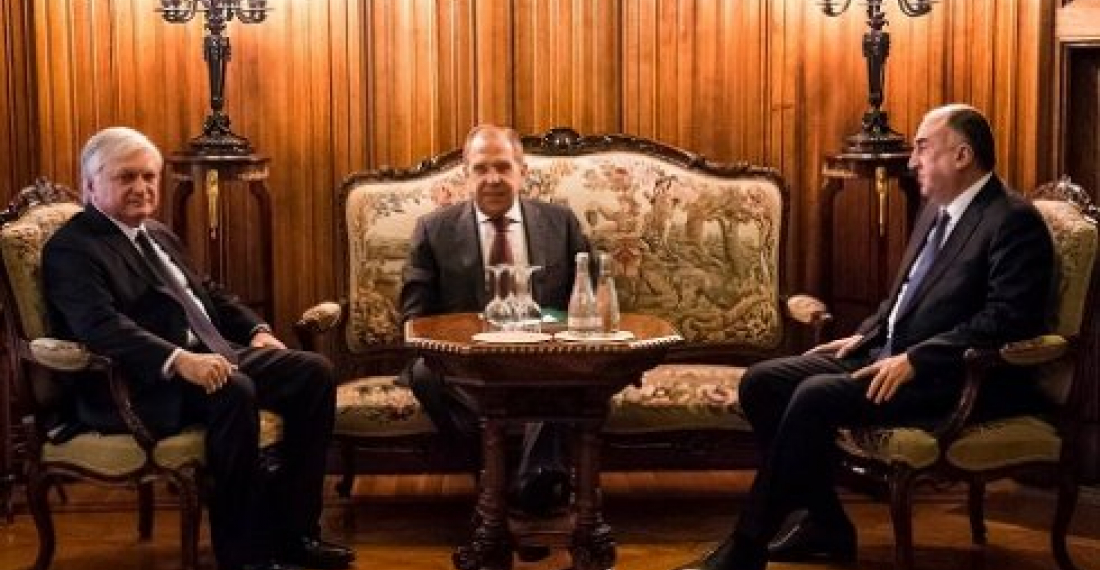Update 3, 11.30 GMT
A terse official statement has been issued at the end of a meeting of the Russian, Azerbaijani and Armenian foreign ministers - Sergey Lavrov, Elmar Mammadyarov and Edward Nalbandian - held in Moscow on Friday 28 April, "on the initiative of the Russian side".
The statement says that "during the meeting, the ministers continued discussions on the prospects for the progress of the negotiation process on the Nagorno-Karabakh conflict's settlement and stressed the need to implement the agreements reached at the summits in Austria's Vienna and Russia's St. Petersburg held in April and June 2016".
The Azerbaijani and Armenian foreign ministers expressed gratitude to their Russian counterpart for contributing to the efforts to find a peaceful solution to the conflict.
Mammadyarov, Lavrov and Nalbandyan agreed to continue contacts on all the issues discussed, said the statement.
Update 2, 11.00 GMT
The meeting of the Foreign Ministers of Armenia, Azerbaijan and Russia has ended. We hope to bring you an update with any statement shortly.
A photo of the three Foreign Ministers has been released by the Russian Foreign Ministry
Update 1, 10.00 GMT
The meeting between the Foreign Ministers of Armenia, Azerbaijan and Russia has started in Moscow, local media reports. The meeting is the latest attempt to restart discussion on the solution of the Nagorno-Karabakh conflict.
In the meantime an Armenian soldier serving with the military formations of the self-declared Nagorno-Karabakh Republic was killed this morning during an exchange of fire. The soldier was named as 19 year old Mher Arzumanyan. Azerbaijani sources have confirmed the incident
....
The Russian Foreign Minister, Sergei Lavrov, will today meet with his Armenian and Azerbaijani counterparts, Eduard Nalbandian and Elmar Mammadyarov, in an effort to re-start negotiations for a solution of the Nagorno-Karabakh conflict.
Negotiations have been stalled for the last eight months as the sides in the conflict argued about the way decisions agreed by the Presidents of the two countries in their meetings in Vienna and St Petersburg in the spring of 2016 were to be implemented. Both sides blame each other for not following up on their committments during these meetings.
Speaking at a brieifing at the Foreign Ministry in Moscow yesterday, Russian Foreign Ministry spokesperson, Maria Zakharova confirmed that the meeting will be taking place, and added that "at a certain moment the co-chairmen of the OSCE Minsk Group and Personal Representative of the Chairperson-in-Office Andrzej Kasprzyk will also join".
Commonspace.eu political editor said that the main result of the meeting is likely to be a decision to convene another trilateral presidential meeting under Russian auspices.
We will be updating this story throughout the day.
related content
Commentary: A "Karabakh Spring" is still possible, even if it come in Autumn
source: commonspace.eu






